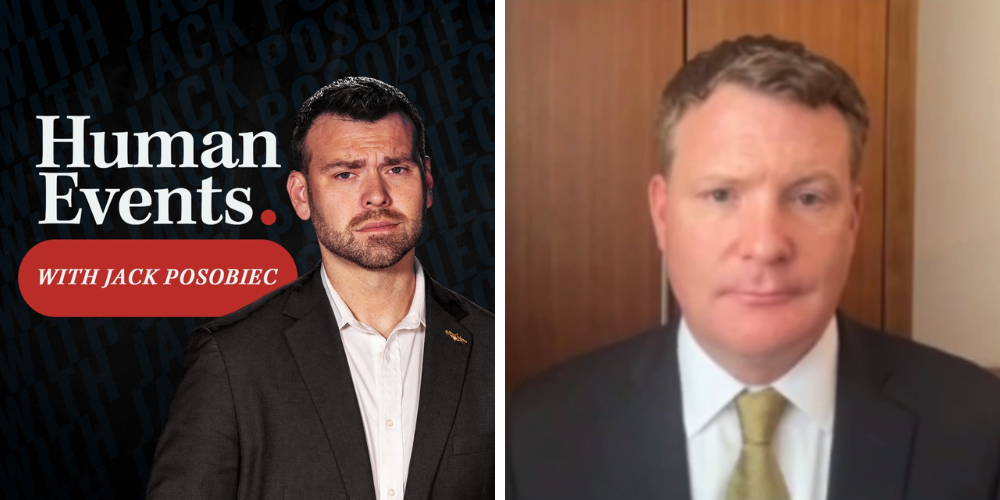The latest indication out of the White House is that President Bush will make Social Security reform his most urgent domestic policy priority in 2005. If Bush succeeds, he will be the first President to modernize Social Security since Franklin Roosevelt created the program in the 1930s. At that time the Social Security tax was just 2% and applied to only the first $2,000 of income. Today the payroll tax is 15% and applies to all income up to approximately $80,000 a year. The payroll tax is now the heaviest tax paid by most middle class families. For many years, conservatives and free-market economists have been pushing for what President Bush has in mind for Social Security. Although the President's plan is not fully formulated yet, we do know the basic outline of the proposal. It would allow young workers to begin diverting 2% or 3% of each paycheck (from the portion that now goes for payroll taxes) into a personal savings account (PSA), like an IRA. These private accounts would accumulate funds over the working life of the taxpayer and could be invested in a combination of stocks, bonds and government securities. The accounts would be individually owned and could never be taken away from the worker. Studies show that for the average young worker now entering the job market, the rate of return on this account would average, even conservatively estimated, between 4% and 6% per year-that's is versus the less than 2% that Social Security returns. Private Ownership Minority workers today tend to get a return from Social Security that is 1% or less, and, according to an analysis by the Cato Institute, some even get a negative return. The big debate now raging within Republican circles is over how large these private investment accounts should be. Sen. John Sununu (R.-N.H.) and Rep. Paul Ryan (R.-Wis.) have sponsored a plan that is even more financially attractive than what the White House has crafted. The Sununu-Ryan plan would allow workers to take the entire employee share of the payroll tax (6.2%) and place the funds in a private account. PSAs invested at that rate would grow so rapidly over time that they would exceed promised Social Security benefits for even low income workers. Most workers would retire with an income two to three times greater with private investment accounts. Hence, under the Sununu-Ryan plan, conventional Social Security would be entirely phased out and the system would be converted to a truly privately operated, personally owned and fully funded pension program. The advantages of President Bush's idea of reforming Social Security by creating PSAs include:
-
1. PSAs offer a much higher financial rate of return to young workers than the current system. 2. PSAs give workers-rather than politicians-control over their own retirement nest egg. 3. The funds deposited in private retirement accounts are funds that cannot be easily taken away by the government. (According to the Supreme Court ruling in Flemming v. Nestor, under the current Social Security law workers do not have any legal right to benefits or to the money they have paid in.) 4. PSAs will increase worker ownership in American businesses and assets. This is a "share the wealth" structure that will help vastly expand the ownership society and raise the level of savings and investment. 5. The increased flow of funds into private capital markets will reduce the cost of capital, and thus increase capital formation, business creation, and ultimately wages and living standards. Marty Feldstein of National Bureau of Economic Research has estimated that the discounted present value of full Social Security privatization is nearly $10 trillion. 6. PSAs will reduce the liabilities of the Social Security program because workers will receive more of their retirement benefits from their personal retirement accounts and will rely less on government-promised benefits. Eventually, if we allow workers to put half their payroll tax dollars into private accounts, the long-term deficits of Social Security will be eliminated. 7. PSAs will allow workers to accumulate real savings that they can turn over to their heirs or their spouses if they die. Under Social Security, since there is no personal ownership, a worker may have invested 15% of his paycheck his whole life but get only a minimal survivor's benefit and a burial benefit from Social Security. With PSAs workers can pass hundreds of thousands of dollars on to their surviving family members in the form of an estate.
All of this has liberals very nervous. Big government advocates (including former Democratic presidential candidate John Kerry) are already trashing the Bush plan as a risky scheme that will destroy Social Security and rob our seniors of their hard earned Social Security benefits. This is a lie. The Bush plan and others like it provide a guarantee that seniors and workers who have already paid into Social Security will receive all of their promised benefits. Social Security private accounts are particularly attractive given that the liberal Democratic alternative is to raise taxes and reduce benefits for seniors. As Peter Ferrara, one of the original architects of private investment alternatives for Social Security and an economist at Club for Growth, notes, "The liberal plan makes a bad deal for workers even worse. Now they would have to pay more taxes and get lower benefits." Debt Reduction George Bush deserves to be applauded for having an adult conversation with the American public about the severe funding crisis in Social Security. The liberal Democrats, by contrast, tell American workers: Don't worry, be happy. They say this even after every independent group and commission has concluded that the system will soon be afloat in red ink. Federal Reserve Chairman Alan Greenspan has noted in recent months that Social Security is in severe financial crisis because in the next 10 years the 75 million baby boomers will begin entering retirement age and there won't be the funds to pay them unless we change course. But if the Republicans are going to expend political capital to fix the nation's retirement system, they ought to do it right. Small private accounts are a step in the right direction, but, if private accounts make sense in the first place, why not allow workers to have control over an even greater share of their paycheck. After all, it is their money. Larger private accounts would require more borrowing in the short term, but substantially less in the long term, because benefit payments would be displaced by the substantial build up in the private accounts. In fact, the Social Security actuaries have found that the Sununu-Ryan plan would dramatically reduce the national debt over the next 50 years. That is why Republicans should be bold in promoting private investment accounts. So much of what goes on in Washington is said to be "for the children," but what could be a greater gift to future generations than a national retirement system that offers workers a fair deal, not a raw deal?




